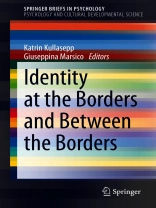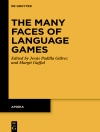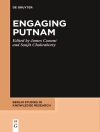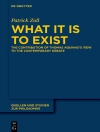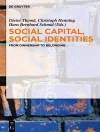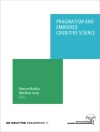Within the general framework of Cultural Psychology, this book provides different perspectives on the relationship between border and identity by experts from several disciplines (i.e. history, psychology, geography etc.). The book offers an “in- depth” comprehension of the intricacy of the border making process and how this affect the identity formation from a psychological, social and cultural point of views. The book takes a close look to some European countries as specimens to investigate the complex link between creation of national/ethnic identity and bordering process that evoke the more general question of the I-OTHER relation.
This book provides an integrated insight into the complex phenomenon of borders and identity. The process of making and negotiating border and the identity formation on the border is analyzed as psychological, social, historical, and cultural phenomena.
This Brief will be of interest to researchers and students as well as diplomats and administrative policy makers within the fields of political science, psychology, cultural psychology, and sociology.
विषयसूची
Chapter 1. Introduction: Making Borders Is Making Identities, Making Identities Is Making Borders.- Chapter 2. Cities of Senses: Visible and Invisible Borders in Public Spaces.- Chapter 3. Multiple Place Attachment as Mental Border Building.- Chapter 4. the Dynamic Functionality of Borders: A Study From a Cultural Perspective.- Chapter 5. Border Selves: Experiences, Positions, and Inner-Others From the Spanish-Moroccan Border.- Chapter 6. The Role of Estonian National Museum in the Process of Redefining the Boundaries of National Identity.- Chapter 7. An Intra-Psychological Perspective on Borders: On the Example of Becoming Estonian.- Chapter 8. Conclusion: The Bordering Process in Mind and Society.
लेखक के बारे में
Katrin Kullasepp is Associate Professor at Tallinn University, School of Natural Sciences and Health. Dr. Kullasepp’s scientific interests concern cultural psychology and her research focuses on development of identity, including students’ professional identity construction and national identity formation. She also takes interest in border studies and in policy design. She is a co-author of several textbooks and workbooks for basic and upper secondary schools in Estonia.
Giuseppina Marsico is Associate Professor of Development and Educational Psychology at the University of Salerno (Italy), Affiliated Researcher at Centre for Cultural Psychology, Aalborg University (Denmark), Visiting Professor at Ph.D Programme in Psychology, Federal University of Bahia, (Brazil) and Honorary Associate Professor in School of Psychology University of Sidney (Australia). Her academic tracks and list of publications include two complementary lines of investigations: 1) an educational-focused research activity where prof. Marsico is widely recognized as the leading figure in the new filed of Cultural Psychology of Education; 2) a cultural oriented interdisciplinary perspective based on both theoretical and empirical investigation, focusing on the borders as a new ontogenetic perspective in psychology and other social sciences
